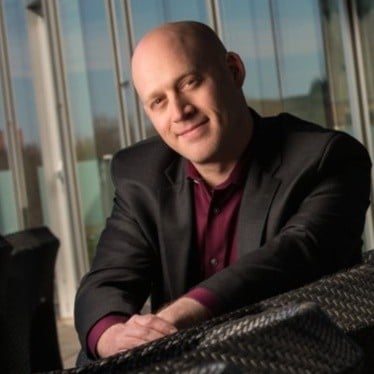Visionary talent executive Jenny Dearborn recently joined the Eightfold Board of Advisors. With more than 25 years of experience in data analytics, talent technologies, and corporate learning, Jenny has held senior leadership roles at SAP, SuccessFactors, Sun Microsystems, Hewlett-Packard and other Silicon Valley companies. Today she is a best-selling author and the founder and CEO of Actionable Analytics Group.
We caught up with Jenny to hear her thoughts on the past, present, and future of work.
What has changed in your time as a leader in learning and human capital, and what is the impact of this change?
When I started in corporate Learning & Development (L&D), in the mid-1990s, it was the department where friendly employees went as their last gig before they retired. Everyone was very earnest in wanting help their colleagues and the company, but there was no rigor or structure to the work – no performance goals or expected business outcomes. And without expected success, there were no success metrics.
Times have changed – but not entirely. Thanks to great business leaders investing in and prioritizing the development of their human capital, new discipline around measurement, growing analytics rigor, and of course technology enabling so much advancement in HCM, the field has seen pretty incredible progress overall. But sadly, and with great frustration, I see many (if not most) HR departments still stuck in the 90s, fumbling along without data or insights into the people side of their business.
The impact is that companies still aren’t getting the return that they should on their most important asset – their people – and too many businesses are still stuck in the vicious cycle of leadership having low expectations of HR because they don’t deliver, and HR not delivering because leadership doesn’t expect or empower them to.
Are there new habits, actions, or approaches that you are seeing from human capital leaders today?
The very best leaders today are deeply grounded in data and analytics for every aspect of their talent pipeline, from passive candidates to current employees to company alumni. Insight into your people, grounded in data and analytics, is THE differentiator between okay and great leaders – not just in human capital, but in business overall.
How should these leaders think about the future of work to make themselves and their organizations successful?
The future of work is a huge topic that I speak and write about often. I see two essential paths to success for HCM leaders. First: change the way they do strategic workforce planning. We can’t just think and plan strategically about what work people will do – no matter the industry, our future workforce includes machines. Some of them will replace people, yes, but many (or most – depending on who you ask) will free and/or aid employees to do higher-value work.
Some common examples in HR are chatbots that field candidate questions and Artificial Intelligence–driven natural language processing that scans and sorts resumes, giving HR professionals back the time to use their human skills like empathy, creativity and problem-solving. Global leaders will also incorporate into their workforce planning calculations seeking out the best people wherever they may be – in Ireland, Israel, India or Indiana.
The second path to success is understanding how uncertain the future is, given the rate of technological change in the Fourth Industrial Revolution. People leaders must teach their people how to learn new skills and quickly adapt to new realities, the two most critical competencies that have enabled humans to survive and thrive in every previous industrial revolution. I am not exaggerating when I say that there has never been a more important time to invest in learning and development, which must be carefully and strategically calibrated for this new era.
From your observations, what do candidates expect today in order to accept a position with a company? What do employees expect from their employers to stay and grow with their companies?
Job seekers know that it’s their job market. In the world’s mature economies, there are more jobs available than people looking for work. So, companies must be engaging, create a compelling value proposition as to why their company is better than a similar one down the street, how an employee’s career dreams and aspirations could come true at their company.
Employees want to grow, be challenged, learn something new every day, make the world a better place – understanding, respecting and responding to these goals is essential to a company fulfilling not just their employees’ expectations but also filling all those open positions and achieving their corporate mission. Deep insights into your people and commitment to their priorities are table stakes in the war for talent. Without them, candidates and employees will simply walk out the door.
Why have you decided to join Eightfold as an advisor?
The vision of Eightfold is EXACTLY what the market needs. Instead of passing people off from one system to the next along the talent lifecycle, Eightfold has a comprehensive end-to-end view of people that is engaging and impactful. Having this kind of visibility and control will enable human capital leaders not just to efficiently execute on their responsibilities but in fact respond strategically to the challenges discussed above. I only wish I had thought of it myself.










